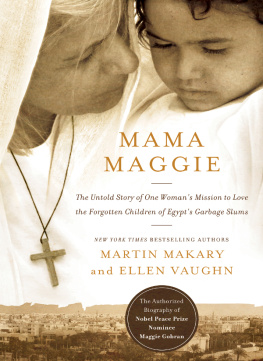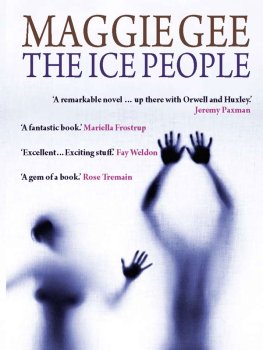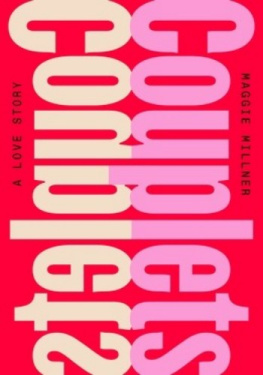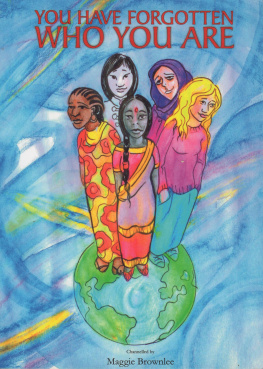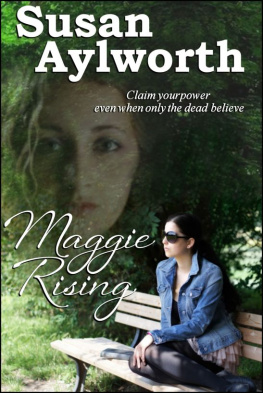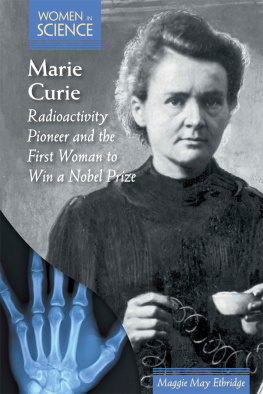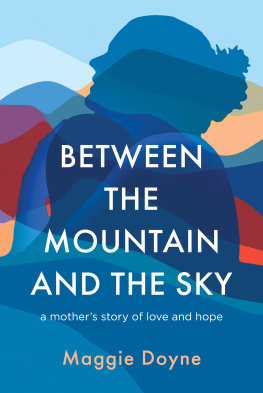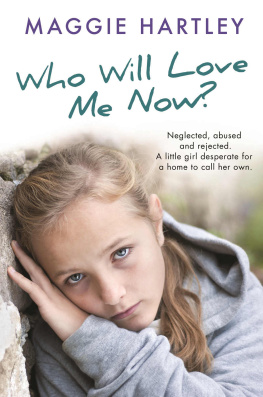
Praise for Mama Maggie
From a region and a country that provides so many stories of conflict, Marty Makary and Ellen Vaughn have brought us an extraordinary story of compassion and hope. In serving the children of Cairos garbage slums, Mama Maggie walks in the sandals of Mother Teresa, demonstrating how a single, transformed life can transform so many others. In chronicling her life, Makary and Vaughn have provided a vivid picture of how concentrated urban poverty can be confronted and defeated by education, mentoring, love, and the leadership of women. Maggie and her organization, Stephens Children, show the enormous, life-changing power that is unleashed when mercy, faith, and joy are combined. The world will be a better place if Mama Maggie inspires both admiration and emulation.
Michael Gerson, columnist for the Washington Post
Mama Maggie is the white angel of Cairos garbage city. Without her love, shining radiance, and tireless practical help, thousands of lives would be hell on earth. No flash in the pan, her life work is truly worthy of a Nobel Prize, and this beautifully written book brings her to the wider attention she deserves.
Os Guinness, author of The Global Public Square
2015 by Marty Makary
All rights reserved. No portion of this book may be reproduced, stored in a retrieval system, or transmitted in any form or by any meanselectronic, mechanical, photocopy, recording, scanning, or otherexcept for brief quotations in critical reviews or articles, without the prior written permission of the publisher.
Published in Nashville, Tennessee, by Nelson Books, an imprint of Thomas Nelson. Nelson Books and Thomas Nelson are registered trademarks of HarperCollins Christian Publishing, Inc.
Thomas Nelson, Inc., titles may be purchased in bulk for educational, business, fund-raising, or sales promotional use. For information, please email SpecialMarkets@ThomasNelson.com.
Unless otherwise noted, Scriptures are from the Holy Bible, New International Version, NIV. Copyright 1973, 1978, 1984, 2011 by Biblica, Inc. Used by permission. All rights reserved worldwide. www.zondervan.com
Scripture quotations marked ESV are from THE ENGLISH STANDARD VERSION. 2001 by Crossway Bibles, a division of Good News Publishers.
Scripture quotations marked NKJV are from THE NEW KING JAMES VERSION. 1982 by Thomas Nelson, Inc. Used by permission. All rights reserved.
ISBN 978-0-7180-3621-8 (IE)
ISBN 978-0-7180-2204-4 (eBook)
Cataloging-in-Publication Data is on file with the Library of Congress
ISBN 978-0-7180-2203-7
15 16 17 18 19 20 RRD 6 5 4 3 2 1
Contents

ITS A PLACE THAT FEELS AS THOUGH ITS BEYOND HOPE. IT has existed on the fringes of Cairo for generations, a maze of crumbling, dark dwellings and narrow streets of packed dirt, trodden by emaciated donkeys pulling wooden carts towering with stacks of rubbish.
This is the place where the garbage pickers live. Fifty thousand of them. They pick up and sort greater Cairos wastethe trash of 22 million peopleand recycle what they can for a few coins a day. They separate rotting food, used diapers, hypodermic needles, broken glass, plastic, metal, and crumpled paper. They live in sewage, disease, and stench. There is little clean water. Among many families, violence, addictions, and abuse are a way of life. Electricity is scarce, and the nights are full of dangers. Almost half the children born here will die before they are five years old. Some starve; some succumb to dysentery. The residents of this place are known in Arabic as the Zabaleen: garbage people.
Because of their enterprise, however, the garbage village has its own unlikely infrastructure and hierarchy. Some people have jerry-rigged electricity and established small storefronts and tiny cafs, a bit of civilization in the midst of the chaos. If you visit the area in the morning, donkey carts and rusty pickup trucks are returning from picking up garbage in downtown Cairo, laden with waste. Men are sitting on plastic chairs in the street, sipping tea or thick coffee and smoking sheesha, the local flavored tobacco, from tarnished water pipes. Young men are making deals; women walk by carrying large loads on their heads.
A little boy named Anthony was one of the few places his parents could go to find work. They arrived with nothing.
Anthony grew up in the stench, relentless activity, and remarkable resilience of the garbage village. He and his four siblings lived in a small room under the stairs in a crumbling multilevel building. As a young boy, he helped his parents gather and sort trash. By the time he was ten, he had left school and had a job ironing clothes in an area where people could actually afford such services.
But there was a problem.
The man in charge of the laundry shop took a liking to Anthony. He pressed in on him. If Anthony refused his advances, the man would burn him with the iron. Anthony dreaded the dark evenings, when the man would come after him. He had burns all over his body. He knew of no way out.
But a determined woman heard of Anthonys plight. Dressed in a white T-shirt, plain white skirt, and white scarf, this lady came to him one night, when he was in a fever and a haze, lying miserably on the floor of his shack and resigned to hell. She took him to her own home, far beyond the garbage slum. She brought a doctor to see him. The doctor came every day for a week and dressed his wounds. The lady hand-fed him so he could gradually get strongerstronger than he had ever been.
The lady talked to him as he lay in bed. She put cool cloths on his forehead. Struck by the stories he told her, she wept. Anthony felt like her tears matched his own. Then she said something astounding. She held his hand tenderly and asked Anthony to forgive her as a substitute for the man who had attacked and abused him. Initially, he didnt know what to think. Then he embraced her.
The lady in white was like an angel, showing him something he had no idea existed. Forgiveness. Dignity. Hope.
If youre never able to live for anything bigger than your pocketbook, your stomach, and your career, then youll never be able to bless those around you.
Tim Keller

MAGGIE GOBRANTHE LADY IN WHITEWAS AN UNLIKELY person to spend her life among the poor. She says that she had no particular skills to help people in need. She had no expertise or training that would equip her to run toward the abused, the oppressed, and the needy. But something happened in her life that turned it upside down and propelled her toward the slums.
Unlike remarkable humanitarian Mother Teresa, who emerged to worldwide recognition from life in a convent, having taken early vows of poverty and chastity, Maggie Gobran came from wealth, privilege, and prominence. She had grown up as a well-to-do Egyptian. Her Coptic Christian family had always paid attention to the needs of those who were less fortunate. She was raised with a strong social conscience. But still, she had maids and vacationed in Europe. She bought clothes in Paris. Her father was a well-respected doctor.
As a young woman Maggie did all things well. She was well educated, married well, had two lovely children, and was affluent, acquiring homes, cars, jewelry, and comforts. She was fun and was admired for her thoughtfulness, her humor and kindness, her many accomplishments. She worked hard, wanting to make a difference for good in whatever she did.
Next page
